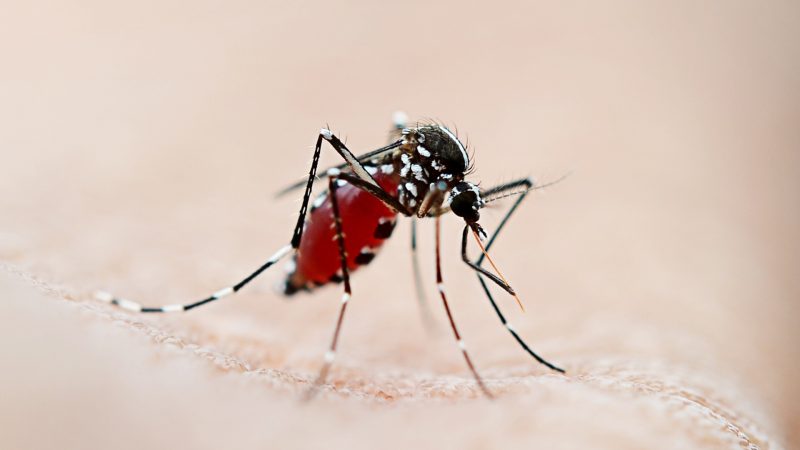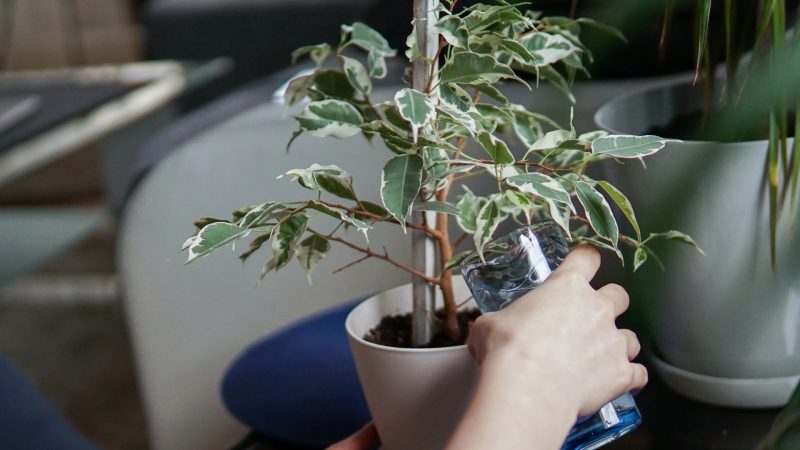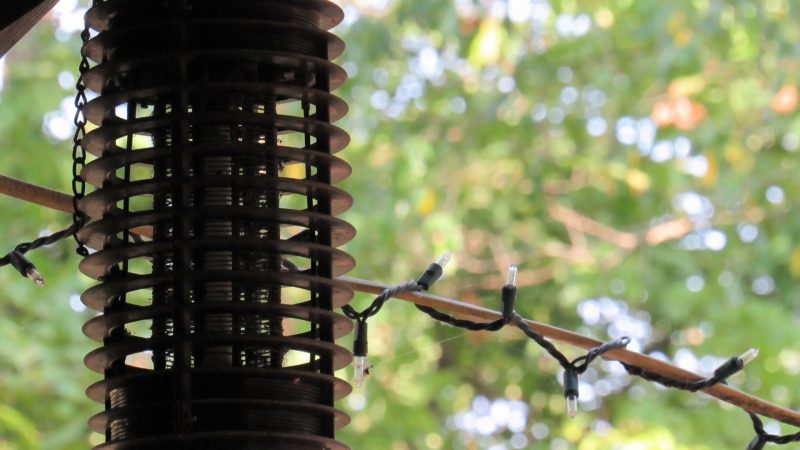Mosquitoes grow in high-humidity environments. They bite animals and people for their blood. Mosquito bites irritate the skin, and they can spread illnesses such as malaria and dengue fever.
How to get rid of mosquitoes indoors? Prevent mosquitos entering your house by installing windows and doors screens. Spray made out of mosquito-repelling plants such as marigolds, lemongrass, citronella, mint, and catnip can be used to repel them. If you don’t mind the smell, garlic spray may also be used to repel mosquitoes.
Mosquito bites can itch for days after being bitten, and the noise they produce might keep you awake at night. We’re here to teach you how to get rid of mosquitoes inside your place and what precautions you should take to keep them away.
What Attracts Mosquitoes Indoors?

Mosquitoes continually seek a spot to land or lay eggs, and water is very appealing to them. These pests are also attracted to simple leaks with tiny pools of water.
Mosquitoes are drawn to areas of dampness, but they can also be found in shady, protected areas. Check crawl spaces, basements, and other locations where a pipe may have leaked.
How Long Do Mosquitoes Live Indoors?
Mosquitoes may survive inside the house for up to three weeks. Take note that a female mosquito would lay up to 300 eggs after a single bite. So, a single mosquito entering your home might rapidly turn into a major problem.
How to Prevent Mosquitoes Indoors?

Here are several suggestions for keeping mosquitoes away indoors.
- On windows and doors, net screens should be used. Also, repair any gaps in net screens to keep mosquitoes away.
- Prevent mosquitoes from laying eggs near or in water.
- Items that absorb moisture, such as tires, buckets, planters, toys, pools, flowerpots, or garbage cans, should be emptied and cleaned once a week.
- Rainwater tanks and water storage vessels should be cleaned and maintained regularly.
How to Prevent Mosquito Breeding in Indoor Water Plants?

Here are some techniques for keeping mosquitoes away from water plants:
- Trimming the water plants will aid in the drainage of the water. Adult mosquitoes will also breed in overgrown parts of your plants.
- Fill your jars and vases with fresh water.
- Place your plants in the best possible sunlight. This will not only benefit plants in obtaining their daily vitamins from the sun, but it will also deter insects.
- To avoid any undesirable standing water, don’t overwater your plants.
- Keeping the water pan under your plant dry will provide further protection against the formation of breeding habitats.
11 Ways to Get Rid of Mosquito Indoor
Mosquitoes are one of the most unpleasant pests due to their itchy bites, and they can transmit diseases such as dengue fever. We’re going to show you 11 different methods to get rid of mosquitoes indoors.
1. Block Entry Points
To keep mosquitoes away, make sure the seals around your doors and windows aren’t damaged. Examine your window screens to ensure that they are in good working condition and have no gaps. If your screens are damaged, you should be able to repair them.
2. Remove Standing Water Where Mosquitoes Could Lay Eggs
Clearing the environment is the most effective technique to prevent mosquitoes. All surfaces that contain standing water should be cleaned, drained, or covered. A pot, old tires, an empty bottle, buckets, or a pool can all be utilized. To prevent mosquito larvae from laying eggs in your containers, empty and cover them so they don’t fill up again when it rains.
Related: How To Kill Mosquito Larvae? | Information & Tips
3. Grow Mosquito Repellent Plants
Mosquitoes can be deterred by a variety of indoor plants, many of which are ideal for growing. Here are some plants to consider for your home:
- Citronella – It is the most widely used mosquito repellent because the compounds found in its leaves are often used in commercial insect repellents. Also, it has a lemon scent and is quite effective in repelling mosquitoes.
- Catnip – It is a mint family member that grows quickly and has the right scent to keep insects away. Place your plants in a bright spot, water them regularly, and pinch out the flowers as they bloom to stimulate the plant to produce new leaves.
- Rosemary – It is another aromatic herb with mosquito-repelling effects. You’ll need a location that gets as much sunlight as possible. Be aware that it may be sensitive when it comes to watering. It is prone to both too much and too little water. When the surface is completely dry, apply water.
- Marigolds – A flower with a mosquito-repelling odor that is easy to grow. To keep mosquitoes at bay, grow them in pots and set them near your terrace or front door.
Related: 9 Best Indoor Mosquito Repellent Plants for Every Household
4. Use a Garlic Spray to Control Mosquitoes
Garlic’s strong, pungent odor makes it one of the most effective insect repellents. Crushed a few garlic cloves and boil them in water for a few minutes. Fill a spray bottle full with the solution and spray it around the area.
5. Keep Sliced Lemon and Cloves Around the House
Lemons and cloves are a tried and proven technique for keeping mosquitoes away from your house. Mosquitoes despise the scent of cloves and citrus fruits. So, cut a lemon in half and insert cloves into both sides.
Keep plates of these cloves and lemons sliced throughout the area to keep mosquitoes away. It’s a mosquito repellent that’s both natural and safe to use indoor
6. Ready Your Coffee Grounds
Coffee grounds are a pest-repellent that is both harmless and efficient. Coffee grounds can help repel mosquitoes as well as other insects such as wasps and bees. The technique is to burn coffee grounds.
The heat causes the coffee grounds to generate an odor that instantly repels insects. Mosquitoes are susceptible to scents and will no longer approach your area. Make sure you’re doing it in a secure location where it won’t injure someone or start a fire.
7. Keep a Dish of Beer or Alcohol
This is a great technique to get rid of mosquitoes inside the house if you have a beer or another alcoholic beverage. Mosquitoes despise the scent of beer and alcohol. Therefore, this approach will keep them away from your home.
Simply placing a beer or glass of alcoholic beverage in a room will drive the insects away. Also, alcohol includes thiamine, and mosquitoes despise the odor of thiamine.
8. Kill Mosquitoes Outside Your Home
With these few techniques and tricks, you can keep mosquitoes away outside of your area:
- Remove standing water from puddles and holes around your home.
- Look for pooling water in old tires, buckets, or trees with holes, as well as old wheelbarrows that gather a lot of stale water between usage.
- Mosquitoes prefer to lay their eggs in thick grass. Keep your grass short, and your bushes and plants pruned so that they have no places to hide.
- Mosquitoes are lousy flyers, which you may use to your advantage. To keep mosquitoes at bay, set up a couple of fans outside your house. You don’t have to leave your fans on all the time; simply use it when you need them.
9. Keep a Dish of Soapy Water
Dish soap kills mosquitoes by lowering the water’s surface tension. It will suffocate mosquito larvae When you put soap in the water, the surface tension changes to the point that the mosquito can’t stand on it and drowns. In a container, combine a few drops of dish soap and water.
10. Use a Chemical Insecticide
, a mixture of pyrethrum and synthetic pyrethrum has known as pyrethroids, is a widely used combination in sprays and fogs. Adult mosquitoes are killed in contact with these chemicals, and they also repel other insects.
No products found.
While most sprays and fogs are designed to kill adult mosquitoes in the air, they also can be applied to the places they hide. These pests live under bushes, trees, decks, planters, hanging plants, and groundcover.
11. Use a Natural Insecticide
Here are the natural insecticide you may use:
- Apple Cider Vinegar – In a tiny spray bottle, combine 1/4 cup apple cider vinegar and equal parts of water. After that, add 40 drops of essential oil of your choice, such as rosemary, lavender, or peppermint, to balance out the base’s relatively strong fragrance.
- Lemon Juice – It may be used to repel insects as well as clean the house. In a pan, blend the juice of three lemons with two cups of water, make it boil, and simmer for approximately an hour. Allow cooling thoroughly before transferring to a spray bottle.
As with all natural mosquito repellent treatments, avoid spraying or rubbing it in your eyes or on open cuts and bruises.
Do Indoor Bug Zappers Work?

operate by luring insects in with an electric zap from the grid encircling the light bulb and killing them. It uses light to attract insects and then zap them. The grid around the bulb will zap and kill the insects as they try to move closer to the light.
No products found.
Indoor bug zappers kill flying and crawling insects with electric wires, but they require power to operate effectively. An insect zapper is usually powered by a direct connection to a power outlet or by batteries.
Ultrasonic Pest Repellers for Indoor Use
are electrical devices that produce high-frequency noises to repel, hurt, or kill insects and pests in the home. The ultrasonic devices are wired into a home’s electrical outlets and are claimed to emit high-frequency sounds that repel mosquitoes.
No products found.
An audiogenic seizure response is thought to be triggered by the sound, which includes non-directional running and the possibility of death due to cerebral bleeding of mosquitoes.
Summary
Mosquitoes can transmit diseases such as malaria and dengue fever, but there are a variety of strategies to eliminate this insect. You may get rid of them by keeping the area clean, preventing standing water, and using mosquito-repellent plants such as citronella, lemongrass, and catnip. Garlic, when turned into a spray with a strong and pungent odor, is also one of the most effective insect repellents.
List of Sources
What is a Mosquito? (2020). Centers for Disease Control and Prevention.
Controlling Mosquitoes at Home. (2019). Centers for Disease Control and Prevention.
Mosquitoes – protect your home a checklist. (2017). Victoria State Government – Department of Health.
- How to Get Rid of Copperheads | Practical Guide - August 27, 2023
- How to Get Rid of Corn Snakes | What Makes Them Aggressive? - August 27, 2023
- How to Get Rid of Alligators | Safety Measures and Removal Methods - July 16, 2023
